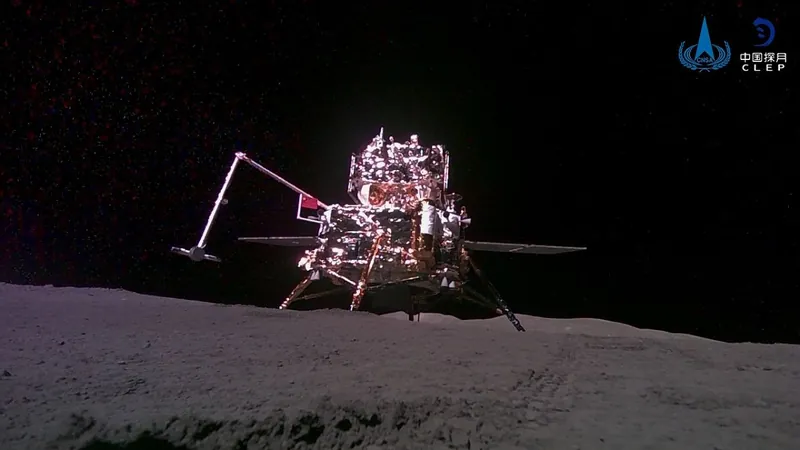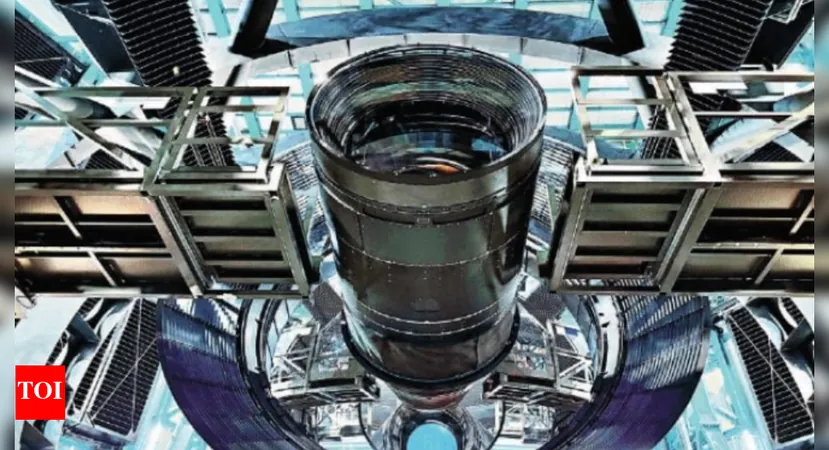
China's Bold New Mission: Asteroid Samples from Beyond Mars!
2025-05-30
Author: Jacques
China has just launched an ambitious spacecraft that could revolutionize our understanding of the universe! The Tianwen-2 probe, designed to return samples from an asteroid near Mars, took off early Thursday from southern China aboard the powerful Long March 3-B rocket.
Set to explore the mysterious asteroid 2016HO3 and the even more distant main-belt comet 311P, this mission has the potential to uncover groundbreaking discoveries that could deepen humanity's knowledge of the cosmos. According to Shan Zhongde, the head of the China National Space Administration (CNSA), the Tianwen-2 mission represents a "significant step in China’s new journey of interplanetary exploration." He confidently predicts that this decade-long adventure will yield revelations about the universe.
Samples from the asteroid are expected to arrive back on Earth in just two years! Scientists are eager to study these specimens, as they may provide crucial insights into the formation of Earth, including the origins of water on our planet.
In a historic achievement, China previously returned rock samples from the far side of the Moon, showcasing its growing expertise in space exploration and its commitment to international cooperation. However, future collaborations with the U.S. are complicated by a law prohibiting direct partnerships between NASA and Chinese entities.
China's Expanding Space Ambitions
Beyond its asteroid mission, China is making significant strides in space through its fully operational Tiangong, or "Heavenly Palace," space station. This facility has firmly established China as a frontrunner in space exploration, opening up opportunities for groundbreaking experiments while entirely built to avoid reliance on the International Space Station, from which it has been excluded due to U.S. security concerns.
Since sending its first astronaut into space over two decades ago, China’s space program—under the oversight of the People’s Liberation Army—has rapidly progressed. With missions that have successfully landed an unmanned explorer on Mars and a rover on the Moon's far side, the nation is now setting its sights on landing a crewed mission on the Moon by 2030.
Looking ahead, the CNSA has ambitious plans for a future Tianwen-4 mission to Jupiter, although details remain tightly under wraps.
As China's space endeavors expand, the world watches eagerly—will these missions unlock the secrets of our solar system? Stay tuned!









 Brasil (PT)
Brasil (PT)
 Canada (EN)
Canada (EN)
 Chile (ES)
Chile (ES)
 Česko (CS)
Česko (CS)
 대한민국 (KO)
대한민국 (KO)
 España (ES)
España (ES)
 France (FR)
France (FR)
 Hong Kong (EN)
Hong Kong (EN)
 Italia (IT)
Italia (IT)
 日本 (JA)
日本 (JA)
 Magyarország (HU)
Magyarország (HU)
 Norge (NO)
Norge (NO)
 Polska (PL)
Polska (PL)
 Schweiz (DE)
Schweiz (DE)
 Singapore (EN)
Singapore (EN)
 Sverige (SV)
Sverige (SV)
 Suomi (FI)
Suomi (FI)
 Türkiye (TR)
Türkiye (TR)
 الإمارات العربية المتحدة (AR)
الإمارات العربية المتحدة (AR)